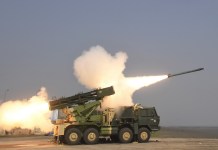The war of words between Pakistan and the US over Afghanistan has got intense. Imran Khan made it very clear to the US that it will no longer act as a ‘hired gun’. Earlier, in August 2018, the Trump administration had announced that it has cut $300 million in military aid to Pakistan as militant groups have complicated the ongoing US war in Afghanistan.
Washington went onto accusing Pakistan of being a safe haven for militant groups (Afghan Taliban). With Islamabad standing up to the US, it’s more likely for the world power to look somewhere else to contain the Taliban. And the most probably it is India.
In 2017, Husain Haqqani, Pakistan’s former ambassador to the US described the new US policy on Afghanistan as a paradigm shift. According to the World Economic Forum, the highlighted two significant changes. “The policy is ‘holding out the prospect of treating Pakistan as an enemy’, and the second, that is ‘scaring Pakistan with the prospect of more Indian involvement in Afghanistan’, which would make Pakistan’s ‘nightmare come true’.”
The organization states that most Indian and Pakistani analysts argue that the direct involvement of India is meant to put more pressure on Pakistan. “India’s strategic involvement in Afghanistan is meant to evoke for Pakistan the foreboding of a two-front situation in a potential military conflict scenario.”
Global observers have noted India’s economic and military rise as a regional hegemony in South Asia. Moreover, its strategic partnership with the United States has created a unique opportunity for the Indian government to reassert its historical and traditional influence in Afghanistan. According to Asia Times, recent developments in Afghanistan and in the region indicate that India might lose the benefit of its investment in the country.
“Despite being a close partner of the former communist regime in Kabul, New Delhi had little choice but to reach out to the various mujahideen factions in order to safeguard its traditional place in Kabul even before the demise of the communist regime in 1992.
However, it was unsuccessful in establishing a meaningful contact with the Taliban when they took over in 1996, which undermined its inability to intervene when the Indian Airlines Flight 814 was hijacked and grounded in Kandahar in December 1999.” In the past decade, India has managed to emerge as one of the most value regional partners for the US and an influential ally of the Afghan government. But the Asia Times also says that India’s mishandling of local Afghan politics over the past 17 years has significantly reduced its influence among major political parties in Afghanistan.
The Centre for Land Warfare Studies states that Afghanistan hasn’t progressed at all. The country stands in the same place where it was 40 years ago.
It further says that “the reason, US has not been able to achieve what it pronounced in 2001 and most recently in August 2018 by President Donald Trump – defeating and creating Taliban free Afghanistan. With each passing day, the US war in Afghanistan is becoming untenable.” Today, the Taliban is at its strongest since 2001, with at least 45 per cent of the area of Afghanistan, under its control.




